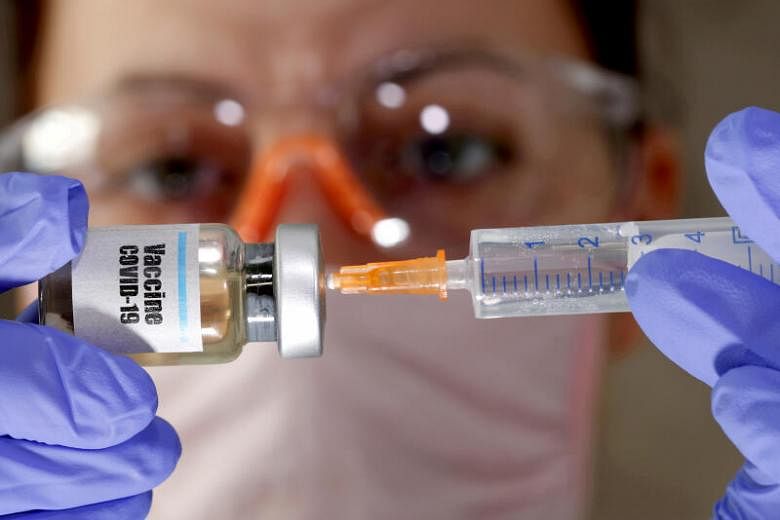BERLIN • The head of the World Health Organisation (WHO) has called for global solidarity in the rollout of any future coronavirus vaccine, as the number of cases soared across the world.
In a video address at the opening of the three-day World Health Summit in Berlin on Sunday, Dr Tedros Adhanom Ghebreyesus said the only way to recover from the pandemic was by working together and making sure poorer countries had fair access to a vaccine.
"It is natural that countries want to protect their own citizens first but if and when we have an effective vaccine, we must also use it effectively. And the best way to do that is to vaccinate some people in all countries rather than all people in some countries," he said.
"Let me be clear, vaccine nationalism will prolong the pandemic, not shorten it."
Scientists around the world are racing to develop a vaccine against Covid-19, which has killed more than 1.1 million people.
Several dozen vaccine candidates are being tested in clinical trials, 10 of which are in the most advanced phase 3 stage involving tens of thousands of volunteers.
British drug maker AstraZeneca, which is developing a Covid-19 vaccine with Oxford University researchers, is seen as one of the front runners in the race.
AstraZeneca said yesterday that its Covid-19 vaccine produces a robust immune response in elderly people and young people and that adverse reactions were lower among the elderly.
The Financial Times reported that the vaccine triggers protective antibodies and T-cells in older age groups. The newspaper cited two people familiar with the finding.
Immunogenicity blood tests carried out on a subset of older participants echo data released in July which showed the vaccine generated "robust immune responses" in a group of healthy adults aged between 18 and 55, the British newspaper reported.
"It is encouraging to see that immunogenicity responses were similar between older and younger adults and that reactogenicity was lower in older adults, where the Covid-19 disease severity is higher," an AstraZeneca spokesman told Reuters.
"The results further build the body of evidence for the safety and immunogenicity of AZD1222," the spokesman added, referring to the technical name of the vaccine.
The news that older people get an immune response from the vaccine is positive because the immune system weakens with age and older people are those most at risk of dying from the virus.
Meanwhile, Israel has said it will begin its first clinical trials of a coronavirus vaccine next month, as the country grapples with a second wave of infections.
Early in the pandemic, Prime Minister Benjamin Netanyahu tasked the Israel Institute for Biological Research (IIBR) with developing a vaccine against the virus.
Covid-19 has killed over 2,370 people in the Jewish state since the start of the outbreak there, and has infected more than 300,000, according to official figures.
On Sunday, the Israeli authorities announced that the first clinical trials of the "BriLife" vaccine would begin on Nov 1, as a spokesman for the defence ministry said the "necessary approvals" had been granted.
The trials will be conducted over several months.
"Our final goal is 15 million rations for the residents of the state of Israel and for our close neighbours," IIBR head Shmuel Shapira was quoted as saying in a statement.
REUTERS, AGENCE FRANCE-PRESSE











